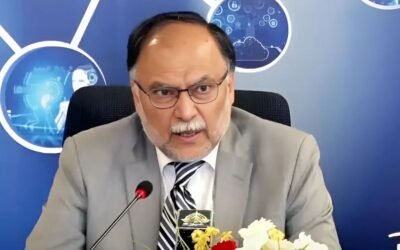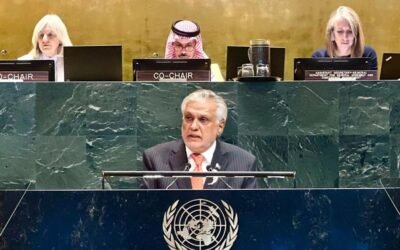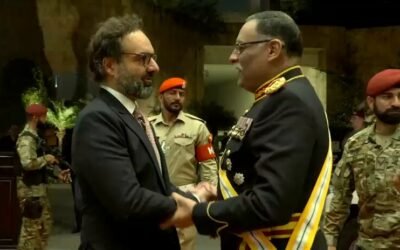Once, an interviewer asked me a question: Does madrassa produce only conservative people? This question can be answered in many ways, but I would like to share a balanced perspective. Historically, Maddrais were early centres of learning in the Islamic world that played a vital role in the development of education. They offered instruction in a wide range of subjects, including theology, law (Fiqh), philosophy, mathematics, astronomy, medicine, and literature. These institutions were crucial in preserving and transmitting knowledge during the medieval period and served as models for the development of modern universities in Europe and beyond.
Currently, when we look at the facts about madrassas, there are almost 40 thousand madrassas in Pakistan, and almost 2.2 million students are enrolled there. If we look at the socio-economic background of the students, the majority come from lower economic backgrounds. They do not have enough resources to invest in the education sector, which is becoming extremely demanding.
On the flip side, madrassas are unique places that always try to provide food, shelter, and education for free. This fact cannot be ignored: if madrassas do not provide education in this form, then more than 2.2 million children will be added to the list of 25 million out-of-school children.
You May Like To Read: Climate Change as a National Security Multiplier in Pakistan

Source: Dawn
In addition to this, many madrassas are rapidly progressing to inculcate modern modes of education.
- For example, there is a fine example of Jamia Bait-us-Salam in Pakistan, where they have blended religious and contemporary studies—a home of Islamic-cum-scientific studies. Also, it has a well-equipped IT lab with O Levels education.
- Moreover, there is Jamia Khawaja Khair Uddin Haqiqa, Kharian, for girls, where digital education is a top priority, and every month an IT expert team from NUST visits the Jamia to teach girls.
- Muslim Hands Educational Complex in Gujranwala stands out as a modern institution because it integrates traditional religious education with contemporary academic and technological advancements, especially for deserving and orphan children.
- There are also many more successful stories of madrassas. In this way, madrassas are portraying themselves as structured social and religious institutions to make change and build a better society.
On the other side of the coin, the religious elite are using madrassas and innocent young minds to fulfill their selfish motives. They usually hijack young students easily because they provide them with basic necessities, and poor innocents get manipulated by religious demagogues. Consequently, Pakistan is facing a rapid increase in extremism.
What Are the Challenges That Mainstream Religious Institutions Are Facing?
Negative Public Perception
Media and public narratives often generalize all madrassas as breeding grounds for militancy, which harms those that are peaceful and community-focused. This generalized narrative creates stigmatization for madrassas.
Lack of Government Regulation and Support
There is a trust deficit between the government and madrassas. Due to this, some madrassas fear the involvement of the government. This creates a lack of government support and weak regulation.
Poor Infrastructure and Resources
There is another issue of underfunding. Because of this, they operate on minimal donations and lack proper facilities like classrooms, libraries, and technology.
Lack of Standardization and Curriculum Reform
Many madrassas are still following outdated curriculums that are based on memorization rather than inculcating creative skills.
You May Like To Read: Global Health Challenges: Pakistan’s Contribution to Disease Control
Solutions to Integrate Madrassas
Solutions and peace always lie in dialogue. Because without dialogue, we are echoes in our own chambers; with it, we are builders of common grounds. Unfortunately, disintegration and extremism are due to our lack of grassroots-level understanding of the problems. However, the Government of Pakistan is making many mandatory reforms to integrate madrassas for an inclusive society:
In 2019, the government created a Directorate General of Religious Education (DGRE) to regulate madrassas. Registered madrassas must share details like curriculum, sources of funding, faculty, and number of students.
National Prevention of Violent Extremism (NPVE) Policy 2024 – Developed by NACTA (National Counter Terrorism Authority), the policy signals a shift from military strategies to a whole-of-society approach targeting the root causes of violent extremism. It introduces the “5 R” framework:
- Revisit (reform education and engage influencers)
- Reach Out (counter radical narratives via media)
- Reduce Risk (youth & women-focused peace initiatives)
- Reinforce (culture, innovation, arts)
- Reintegrate (deradicalisation & rehabilitation programs)
Similarly, the Punjab Centre of Excellence on Countering Violent Extremism Act 2025, passed by the Punjab Assembly in June 2025, establishes a dedicated provincial institution to research, advise, and coordinate strategies against all forms of violent extremism. The Act creates the Punjab CVE Centre, governed by a board comprising government officials, police, academics, and civil society members. The Centre’s mandate includes curriculum reform support, community outreach, digital monitoring, and training programs, funded through a dedicated CVE Fund
By concluding, it is important to mention that madrassas are trying their best to integrate with modern society. They are providing quality education especially to the lower strata of the society. It is our national duty to accept madrassas and their students wholeheartedly and integrate them by giving them quality opportunities to learn more and develop as patriotic people. If we continue looking at this faction of society with hate and labeling them as conservative and extremist, then there will be an unbearable loss for us. It is high time to implement inclusive policies at the grassroots level on common grounds. It is all the game of fulfillment of basic necessities by the state; if we provide them, then there will be no extremism.




























